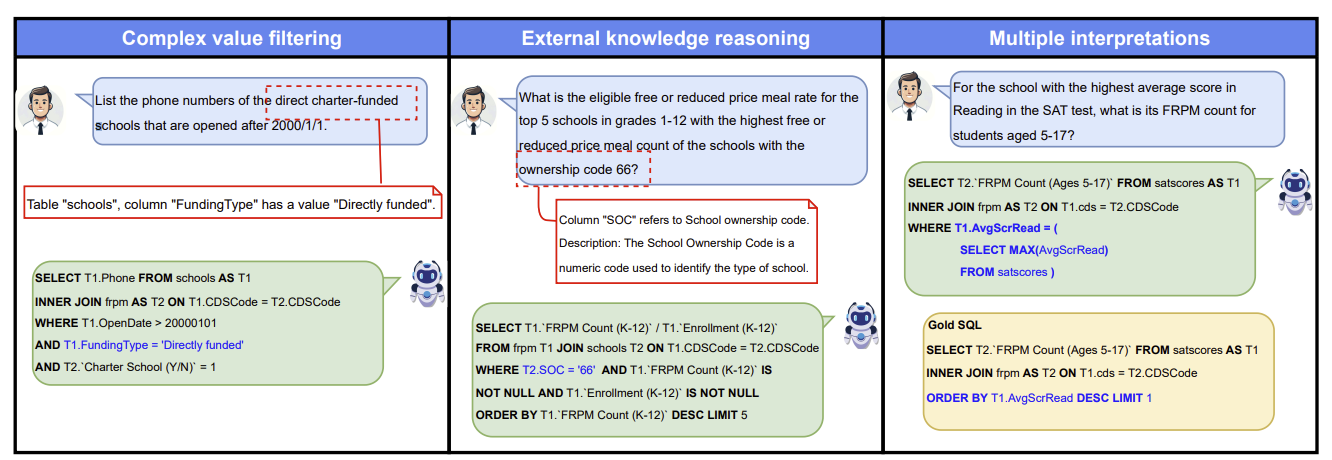CHESS: Contextual Harnessing for Efficient SQL Synthesis
MAS@ICML 2025
DOI: 2405.16755
Abstract
Utilizing large language models (LLMs) for transforming natural language questions into SQL queries (text-to-SQL) is a promising yet challenging approach, particularly when applied to real-world databases with complex and extensive schemas. In particular, effectively incorporating data catalogs and database values for SQL generation remains an obstacle, leading to suboptimal solutions. We address this problem by proposing a new pipeline that effectively retrieves relevant data and context, selects an efficient schema, and synthesizes correct and efficient SQL queries. To increase retrieval precision, our pipeline introduces a hierarchical retrieval method leveraging model-generated keywords, locality-sensitive hashing indexing, and vector databases. Additionally, we have developed an adaptive schema pruning technique that adjusts based on the complexity of the problem and the model’s context size. Our approach generalizes to both frontier proprietary models like GPT-4 and open-source models such as Llama-3-70B. Through a series of ablation studies, we demonstrate the effectiveness of each component of our pipeline and its impact on the end-to-end performance. Our method achieves new state-of-the-art performance on the cross-domain challenging BIRD dataset.



